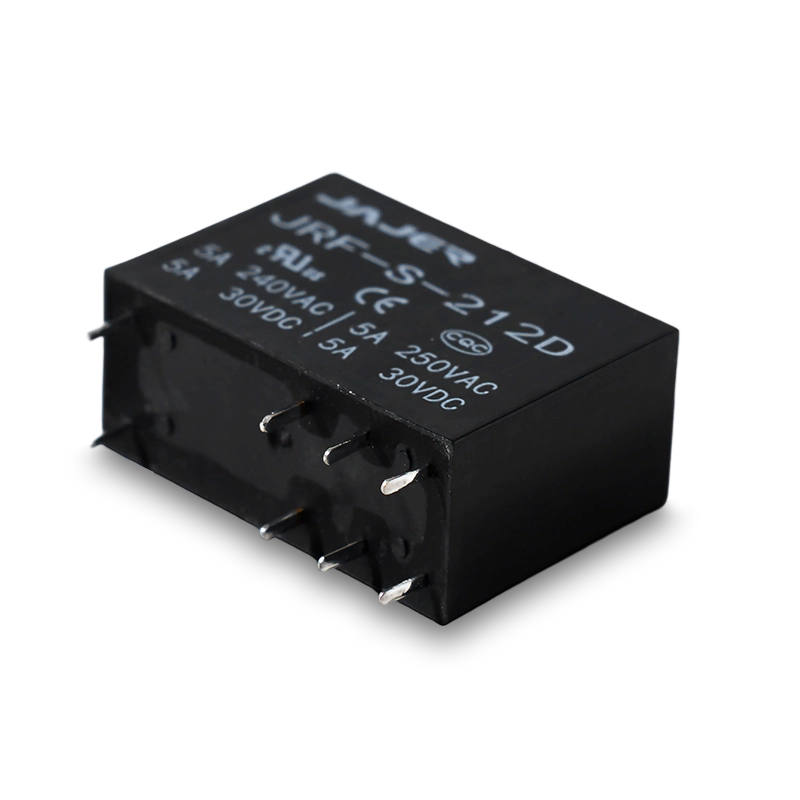Industrial control panels are at the heart of automation, power management, and process control across factories and commercial facilities. Within these panels, relays function as critical switching components that manage signals, control circuits, and ensure safe electrical operations. A relay allows a low-power signal to control a higher-power circuit, providing isolation and protection while maintaining precise control. By selecting the right relay type, engineers can achieve stable performance and long-term reliability in a wide range of applications.

Among the many relay types available, the small signal relay is designed for applications where low-voltage or low-current switching is required. These relays are often used to transmit control signals, activate alarms, or manage communication equipment inside the panel. A small signal relay can handle delicate electronic circuits without introducing unnecessary electrical noise. Its compact design and sensitive operation make it ideal for monitoring devices and control boards where space is limited and precision is essential.
For printed circuit board (PCB) applications, the 5V PCB relay offers a convenient and efficient solution for low-voltage control. This relay is engineered to be mounted directly onto PCBs, simplifying installation and integration into industrial control panels. A 5V PCB relay is commonly chosen for logic-driven systems that operate with standard 5V signals, such as programmable controllers or automation equipment. Its consistent switching capability ensures dependable operation even in demanding environments where continuous performance is required.
Relays provide a crucial layer of electrical isolation between control circuits and high-power equipment. By using devices such as small signal relays and 5V PCB relays, engineers can separate sensitive control signals from higher voltage loads, reducing the risk of electrical faults or interference. This isolation protects not only the control panel components but also the personnel who maintain or operate the equipment. The ability of a relay to act as a safe intermediary is one of the key reasons it remains a trusted component in industrial systems.
Modern industrial control panels must accommodate a variety of automation tasks, from controlling motors to managing lighting and heating systems. Relays are integral to this flexibility. A small signal relay can handle sensor outputs or trigger alarms, while a 5V PCB relay can switch control signals for microprocessor-based systems. Together, these relays create a versatile environment where different types of loads and control methods can coexist within the same panel. This adaptability allows facilities to upgrade or expand their systems without extensive redesign.
When selecting relays for industrial control panels, engineers evaluate factors such as voltage rating, current capacity, switching speed, and contact material. For small signal relays, sensitivity and low contact resistance are critical to ensure accurate signal transmission. For 5V PCB relays, mechanical strength and soldering quality play important roles in maintaining long-term stability on the circuit board. Proper heat dissipation, spacing, and protective enclosures further enhance the life span of these relays in continuous operation.
Regular inspection and preventive maintenance help maintain relay performance over time. Checking for contact wear, ensuring clean solder joints, and verifying coil resistance are simple steps that can extend service life. In industrial environments where control panels operate around the clock, such maintenance ensures that small signal relays and 5V PCB relays continue to function reliably, less downtime and avoiding unexpected failures.
Relays remain an indispensable part of industrial control panel design, offering safe switching, signal control, and electrical isolation. Components like the small signal relay and the 5V PCB relay provide practical solutions for both low-power signal management and PCB-mounted applications. By carefully considering design requirements and maintaining these devices properly, engineers can build control panels that operate efficiently and adapt to the evolving needs of modern industrial systems.
Quick Contact
Yueshang Innovation Park, Wengyang Street, Yueqing City, Zhejiang, China
Pages
Stay In Touch
If you have any questions or need help, feel free to contact with our team.